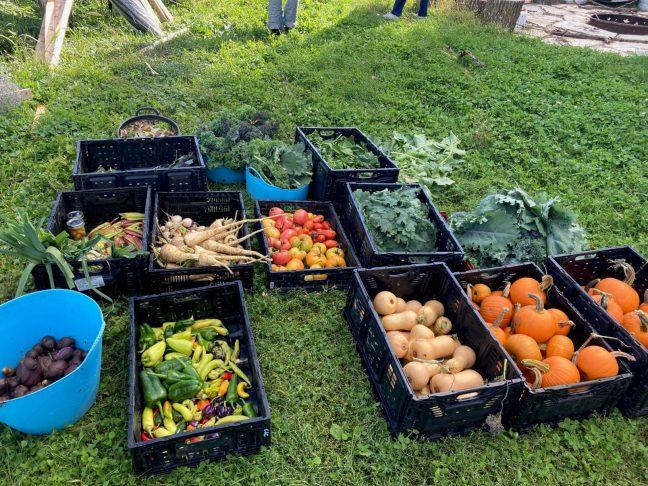In light of COVID-19’s detrimental effects on the U.S. labor force and supply chain, many legislators and non-profit groups are focusing on recruiting migrant workers in the agricultural sector.
According to the Wisconsin State Journal, The Farm Workforce Modernization Act of 2021 could guarantee migrant farmworkers legal residency.
“If passed, the legislation would establish a temporary Certified Agricultural Worker status for undocumented farmworkers who meet specific requirements, such as previous agricultural work experience and continuous presence in the United States,” staff attorney at the Washington-based nonprofit Farmworker Justice Andrew Walchuk said to The Wisconsin State Journal.
Farm to Table: In America’s Dairyland, UW students with farming backgrounds note campus disconnect
According to the House of Representatives, for a migrant laborer to attain eligibility for Certified Agricultural Worker status, they need to pass a background check. Applicants must also prove they have worked in agriculture for at least 180 days over the past two years.
Morning AgClips, an agriculture news site, said The Farm Workforce Modernization Act has passed the House of Representatives but has not gone through the Senate.
The agricultural labor shortage was a problem before the pandemic, but the shortage was exacerbated COVID-19. Center for Integrated Agricultural Systems researcher Michelle Miller said there are multiple drivers of the labor shortage. The first is a rapid exodus of people living in rural areas.
“There’s been this movement of people into urban areas for a very long time and it started out slow, but it’s just gotten faster and faster,” Miller said.
Miller also said poor working conditions deter people from working on farms. Exposure to pesticides is one of the primary concerns Miller has heard from agricultural workers. Another prominent one is unsafe equipment.
Photojournalist uses depictions of immigrant farmworkers to spark change
In Wisconsin, where 40% of dairy workers are migrants, the bill could have a strong impact on the state economy. The Wisconsin State Journal said an estimated 90% of the state’s migrant dairy workers are undocumented.
According to Farm Progress, Wisconsin’s reliance on migrant labor poses certain legal and economic challenges. “Some immigrant farmworkers lack legal authorization to work and live in the U.S., which exposes both employers and employees to increased risk, threatening agricultural investment,” Farm Progress said.
According to the US Department of Labor, when farmers foresee a shortage of agricultural labor, they can bring in foreign workers under the H-2A program.
In an episode of the Dairy Stream Podcast, hosted on Morning AgClips, labor attorney Brandon Davis how the program works and helps ease labor-shortage tensions.
“We simply don’t have enough labor to complete the farm to table process, so the H-2A program, for over 30 maybe 40 years now, has given a solution to farmers who are doing good work in this country,” Davis said on the podcast.
The Farm Workforce Modernization Act expands on the H-2A program. Under the new legislation, David said the program is expected to reach more parts of the agricultural sector, such as dairy.
In a WPR podcast, Vox reporter Nicole Narea said the Modernization Act also allows migrant workers to apply for US citizenship.
“The bill could legalize up to 1.2 million immigrants currently working in the agricultural industry who don’t have legal status — that’s about half of the farm labor workforce,” Narea said.
Despite the political divisiveness of recent immigration debates, 30 House Republicans supported the bill. Narea explained representatives from rural districts feel the effects of the massive labor shortage in the agricultural sector.
In an interview with The Badger Herald, Brandon Davis said passing the Modernization Act requires a balance between competing interests. He said the final bill will have to satisfy the interests of the government, agri-business, American citizens and the workers themselves.
According to the Wisconsin State Journal, Representative Ron Kind (D-LaCrosse) was the only Wisconsin legislator to support the Modernization Act in the house.
Rep. Kind said the bill would help stabilize the agricultural workforce as the industry recovers from the COVID-19 pandemic.
Miller said cultural issues have created pushback against increased immigration into rural areas. She said language barriers and differences in religion between rural Americans and immigrant workers often created tension in rural towns.
Davis said much of the continuing legislative debate surrounding the Act pertains to how wages should be set for migrant workers.
“We just want to serve farms in the U.S. without hurting American workers seeking employment,” Davis said.


















